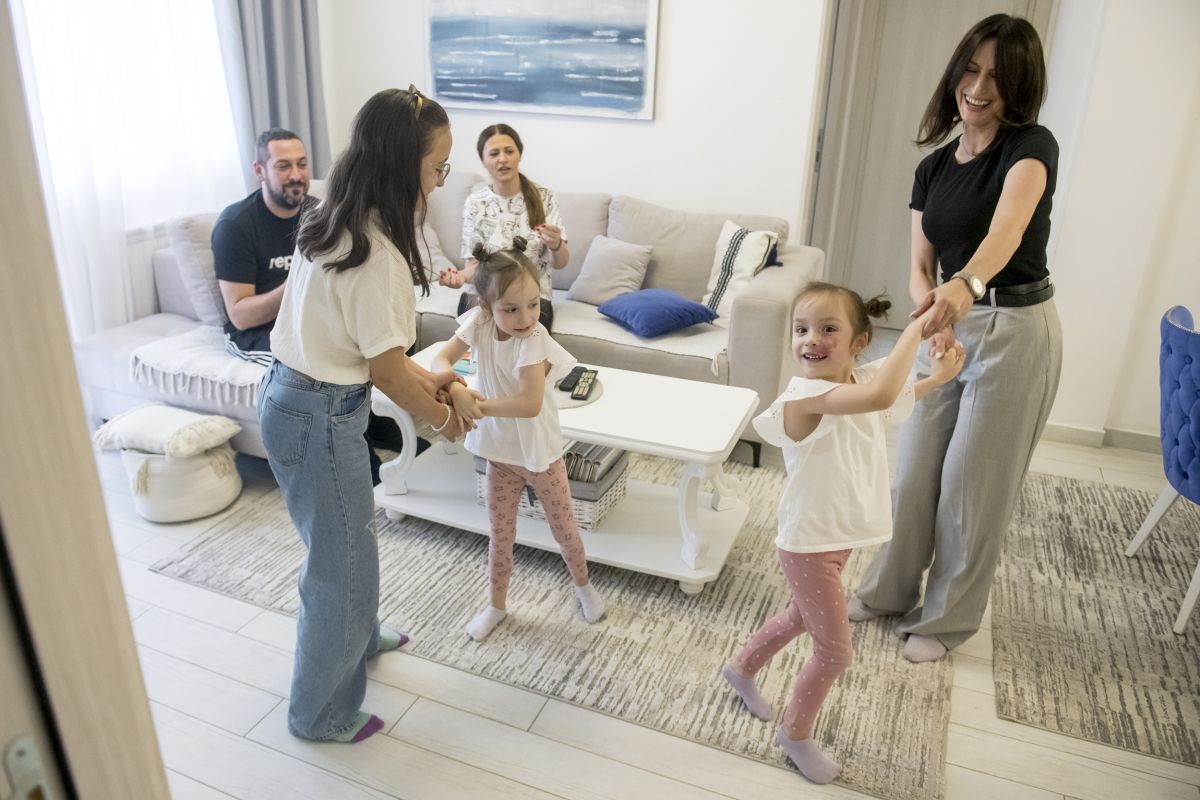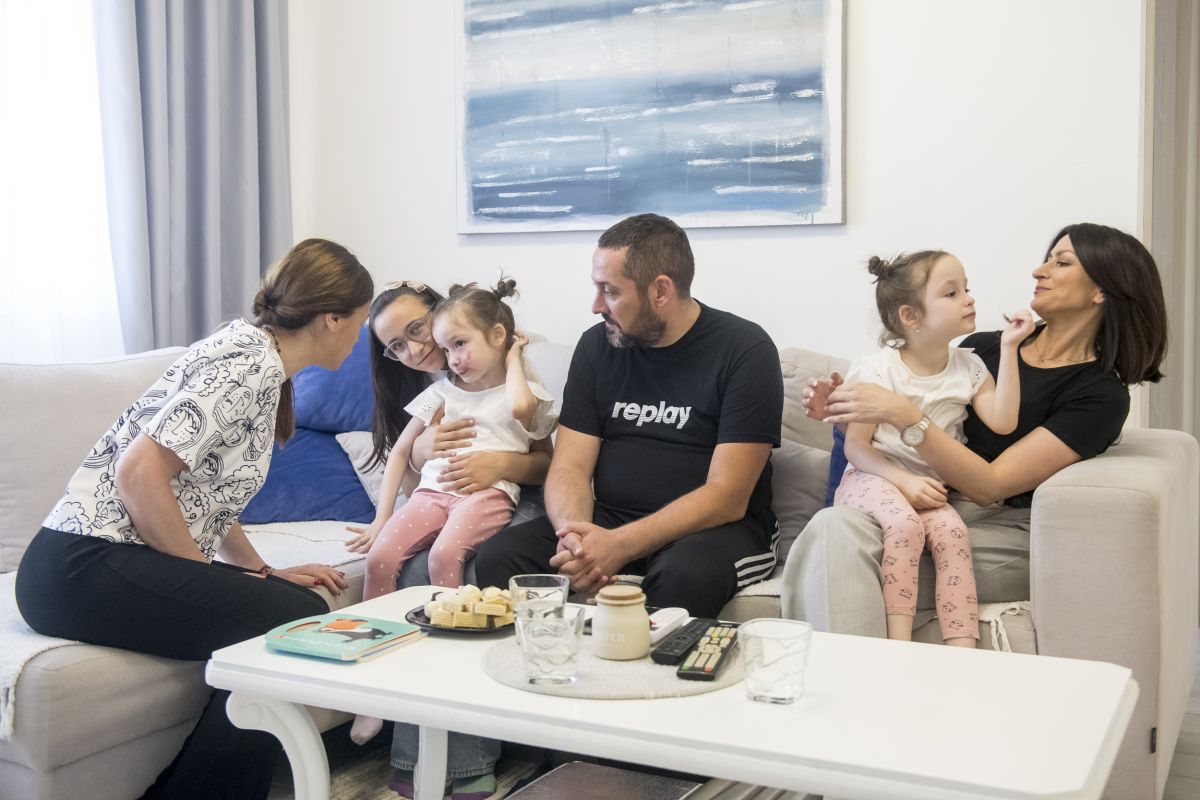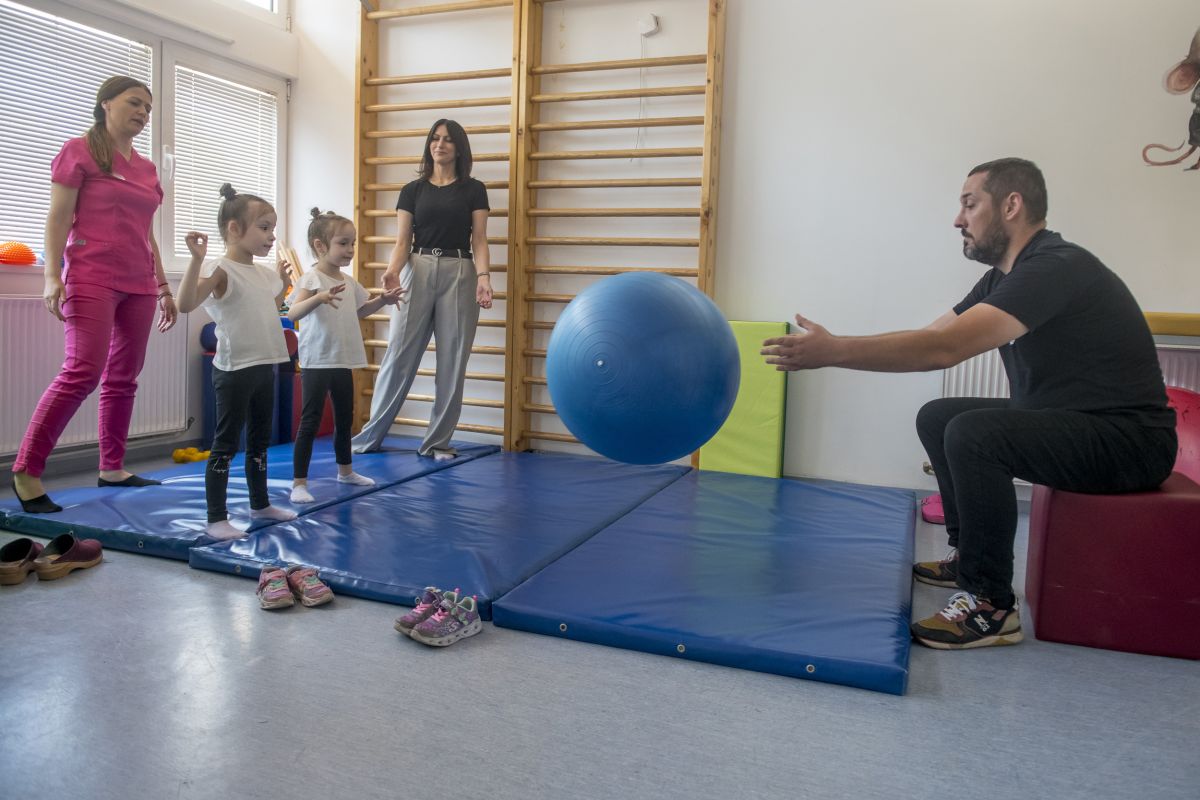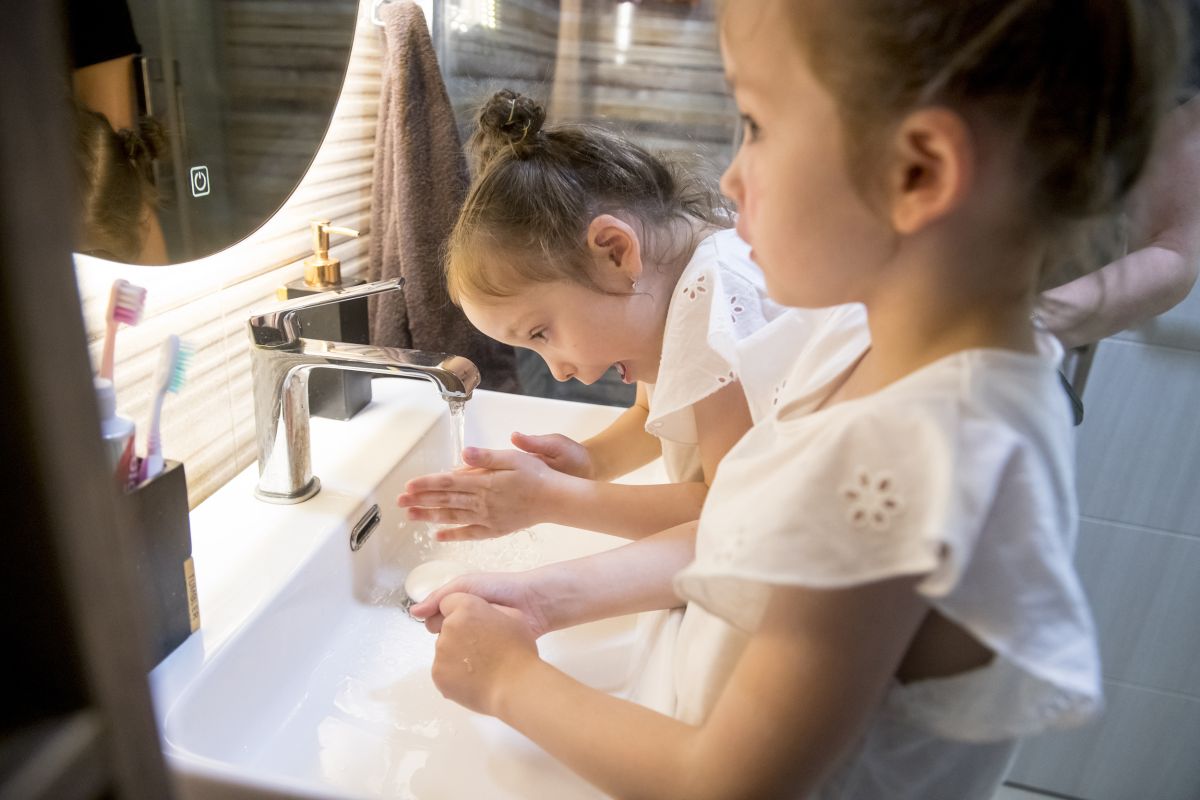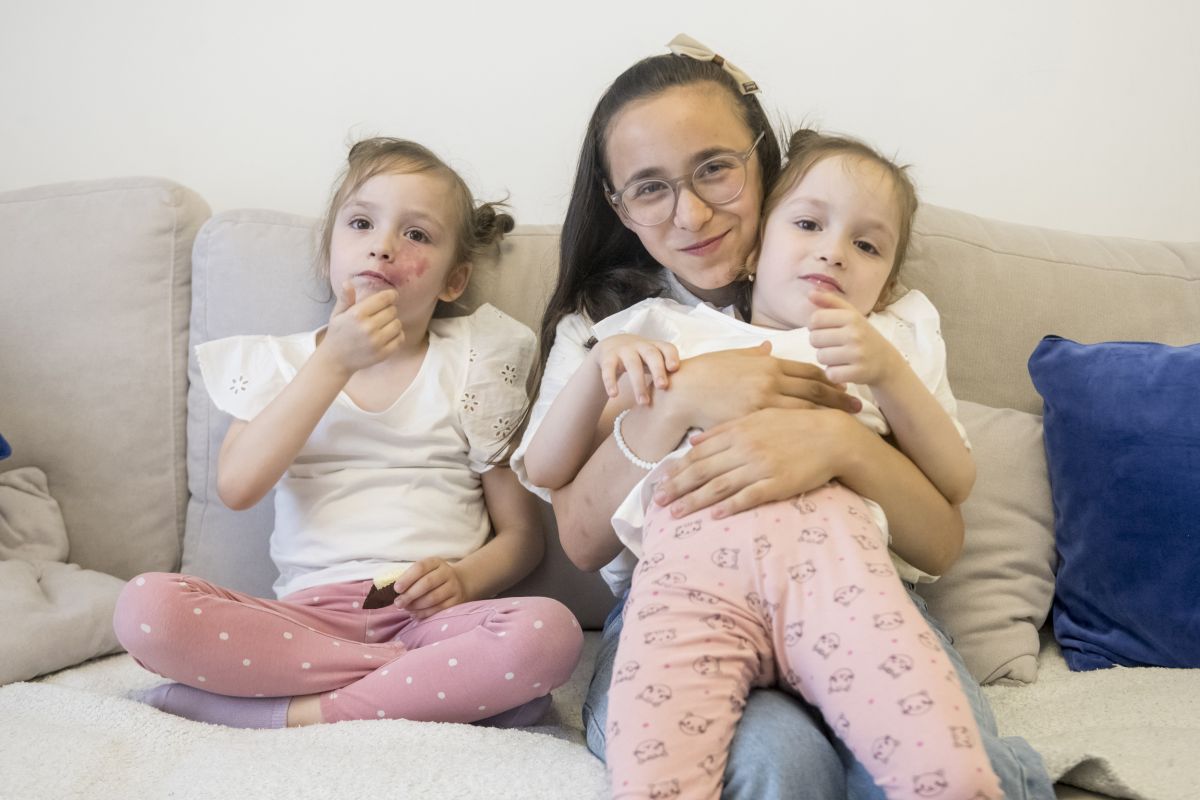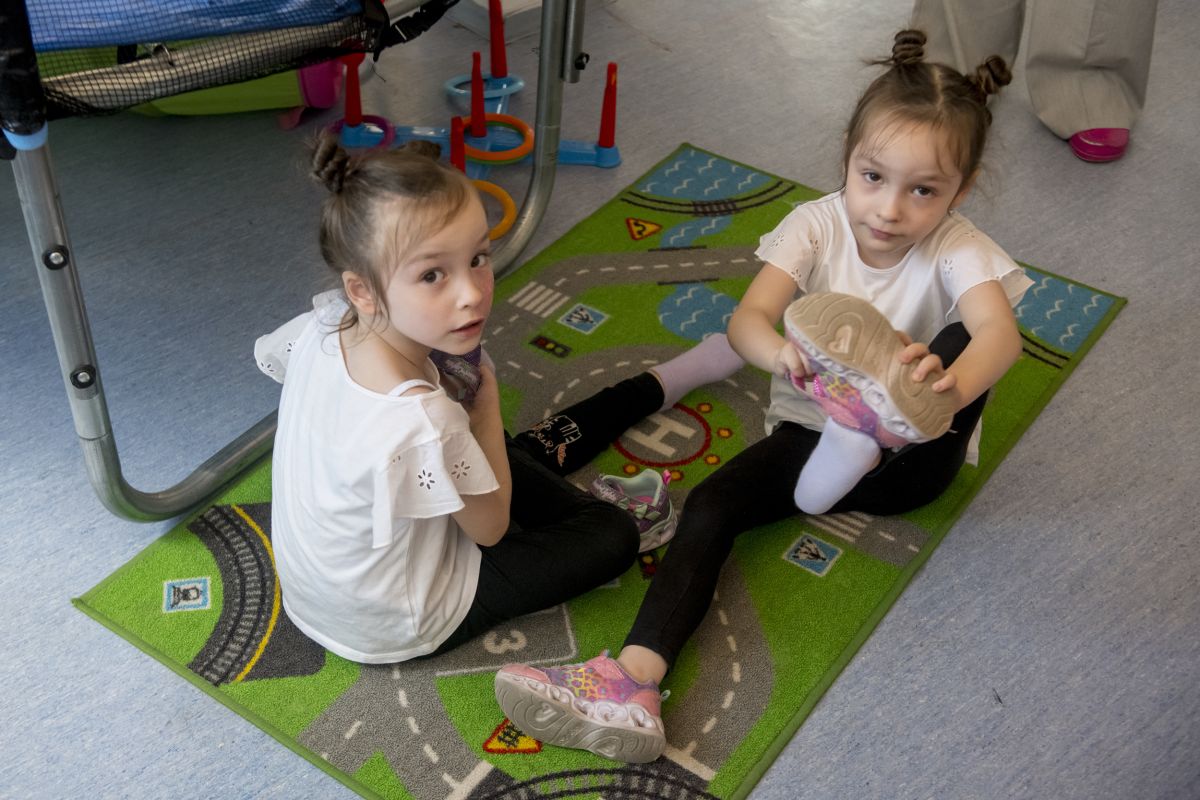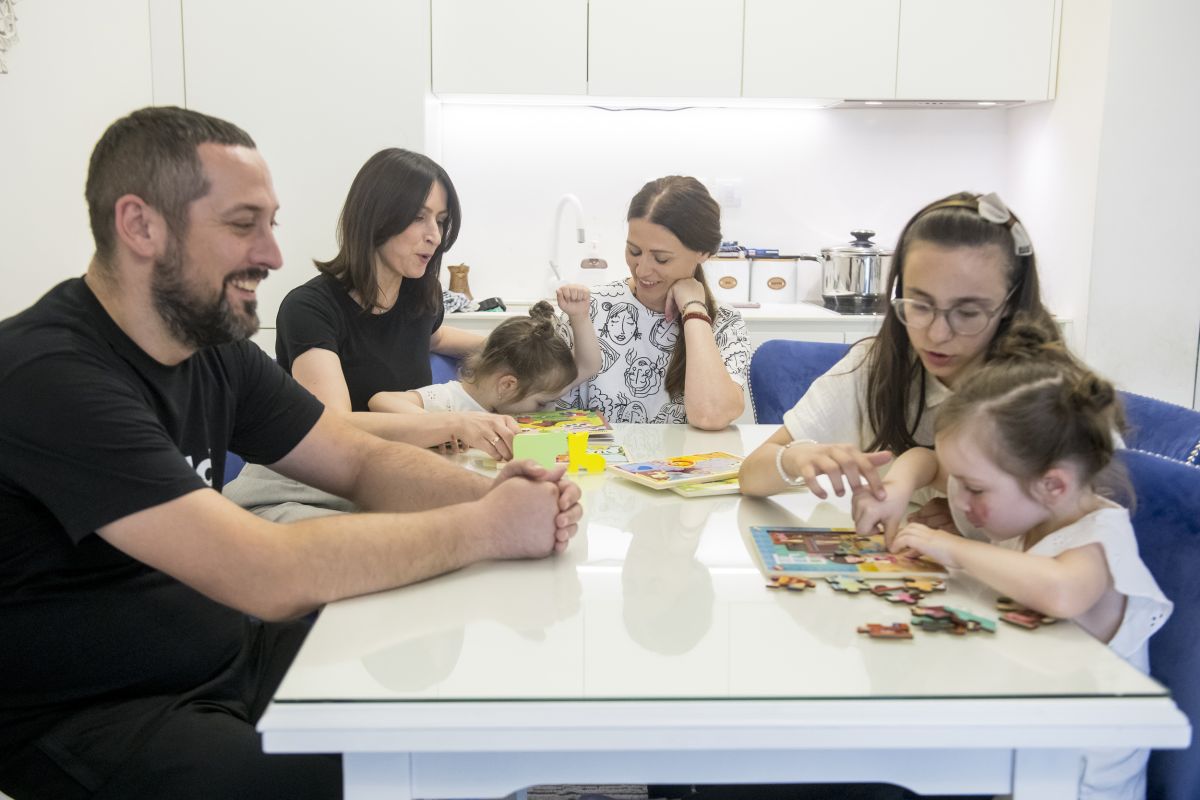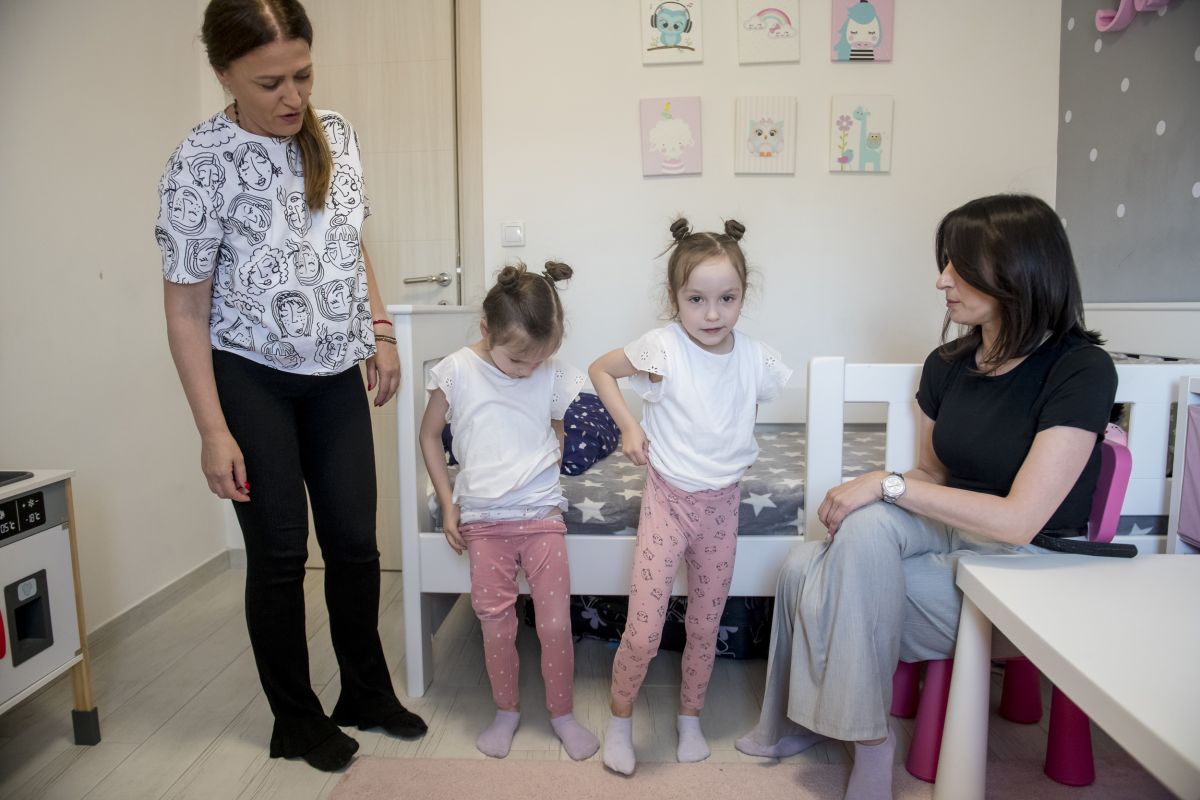Success Lies in Unity
“Before they started with FCEI, they couldn’t form sentences, they used some of their own words, we couldn’t understand them at all, and they couldn’t do anything. Now they can say a lot, they talk all the time. They never stop,” explains eleven-year-old Teodora, the older sister of Nika and Andrea.
Today, these five-year-old twins are happy and playful girls. Their story, with a happy ending, didn’t have such a promising start. Born prematurely in the eighth month of pregnancy, the girls required three weeks of medical care in Kragujevac due to a brain haemorrhage before they were finally able to go home. Initially, their parents, Sandra and Petar, believed everything was fine. However, their challenges continued as they began preschool at the age of two.
“At that time, they couldn't do anything. They were completely non-verbal and very clumsy in terms of motor skills. Then we went to the pediatrician, and he referred us to FCEI - family-centred early interventions. I spent two hours with the coordinator. It was simply incredible that someone asked us what we wanted, how we thought things should be done with the child,” says Sandra.
Nika and Andea are the first children in Kraljevo whose families benefited from the FCEI programme. Guiding their progress from the outset has been Jelena Mrvic, a pedagogue and coordinator of the Developmental Counselling Unit at the Health Centre Kraljevo, serving as the primary service provider in the FCEI programme.
“We provide maximum support to children and their families both at the Developmental Counselling Unit, and in their homes and preschools. Parents no longer wait outside the office for their child but instead participate with the therapist in working on set goals and strategies,” says Jelena.
She explains that at the Developmental Counselling Unit within the Kraljevo Health Centre, both children and parents work together with therapists on exercises, such as motor skills. Much more is done in the home environment.
“When parents believe that their child hasn’t developed certain skills, for example, going to the toilet alone or dressing and undressing, we jointly decide which strategies to apply. Then, on the spot, in the home environment, parents, therapist, and child together participate in this kind of strategy to achieve the goal. The most common requests from parents are for children to learn to dress and undress independently, wash their hands on their own, and brush their teeth,” says Jelena.
FCEI (Family-Centred Early Interventions) is a programme that has been implemented in Serbia since 2019. It provides support in home environments, preschools, and developmental counselling unites for families with children up to 6 years old who have developmental risks, difficulties, or challenges. With the support of UNICEF, Family-Centred Early Interventions are now expanding to other smaller municipalities through the “PRO - Local Governance for People and Nature” Programme.
“This is an amazing opportunity for parents to be involved, for the whole team from the very beginning to be focused not only on the child but on the family, working to empower the family. Children are observed in their natural environment where they feel most comfortable, making it easier for them to learn new activities,” says mom Sandra.
Teodora boasts that her sisters have learned a lot from her since they joined the FCEI programme, imitating her.
“I always play with them. They've learned from me how to set the table, wash their hands, and how to make the bed. Now they can dress themselves, make the bed, and put on their shoes on their own. They know how to read book and how to draw because they no longer need help with lines. I can do everything with them, go outside, walk in the park, and ride scooters,” explains Teodora.
FCEI entails working with each child according to an individual plan, tailored to his or her needs and abilities. According to mom Sandra, this has greatly contributed to the progress of the girls.
„Now they can name objects, we’re working on forming sentences. They ride scooters, climb, and jump, all things they didn't do before. Now they are very motorically skilled, they know how to write and recognize letters, and they draw very well, which they couldn't do before. So, I think they have really, really progressed a lot in the past year,” says Sandra.
Dad Petar is involved in all family activities. He says that progress is visible every day.
“We knew, for example, that if she wanted water, she would go to the faucet and point. Now she says, ‘Give me water, give me an egg, I want to eat, I'm hungry, I want ice cream, I want chocolate.’ When we used to go to the speech therapist, for instance, Nika would protest and refuse to go inside. Now, with Jelena, they see it all as natural. Neither of them protests when Jelena and Gordana, the speech therapists, come. They see them as family members,” says Petar.
Jelena is particularly proud of the Pesic family because Nika and Andrea show progress even outside the home, in preschool.
„The girls are also involved in a peer group where they have learned to interact with friends and participate in all activities. They were not independent in dressing themselves, handling utensils, or maintaining hygiene. They have mastered all of these through this programme,” Jelena explains.
Jelena exchanges experience about the FCEI programme with experts and collaborators from Kraljevo and other cities, and she often organizes workshops for colleagues and parents at the Developmental Counselling Unit.
Currently, 8 families are enrolled in the FCEI programme in Kraljevo. Due to the positive experiences and progress that this programme has brought to children and their families, Jelena encourages all parents to apply.
„I would like to urge parents not to give up. If there is a Developmental Counselling Unit or a family-centred early interventions programme where they live, they should go as soon as possible. They’ll see the kind of support they’ll receive, which will be significant for both their child and them. According to parents, when they see progress in such a short time, they’re even more motivated to follow, participate, and be creative in this programme,” Jelena says.
So far, over 3,500 children and their families from 15 districts in Serbia have been involved in the FCEI programme. This year, with the support of the “PRO - Local Governance for People and Nature” programme, FCEI is expanding to 6 more districts and over 20 smaller municipalities. The goal of all partners is to ensure that this good practice reaches every family with children facing developmental challenges.
Both mom Sandra and dad Petar encourage other parents to be persistent and not hesitate to seek support.
„I would encourage them not to be afraid, to be brave. Once they take that first step, I think they’ll be very satisfied and happy that they accessed the FCEI programme. Now we understand each other better, we know our child better. Through this programme, we have somehow gotten to know each other. And somehow, we are even more connected to each other,” says Sandra.
For dad Petar, the programme is equally beneficial to both the children and the parents - Andrea and Nika are on a good path to realize their full potential, and the family has significantly improved functionality and quality of life.
“I'm no longer mentally tense; before that, I was very scared and nervous. I advise other parents facing similar challenges to confront the problem head-on. They should seek help as soon as possible to assist their children in their development. I’m really satisfied with the programme, and we’ll continue going to FCEI until the first grade,” says Petar.
You can also watch the Pešić family story in the video content available on the PRO Programme website.
The Programme “PRO - Local Governance for People and Nature” is jointly implemented by United Nations agencies in Serbia - UNOPS, UNICEF, UNFPA and UNEP, in cooperation with the Serbian Government, and with financial support of the Government of Switzerland.
